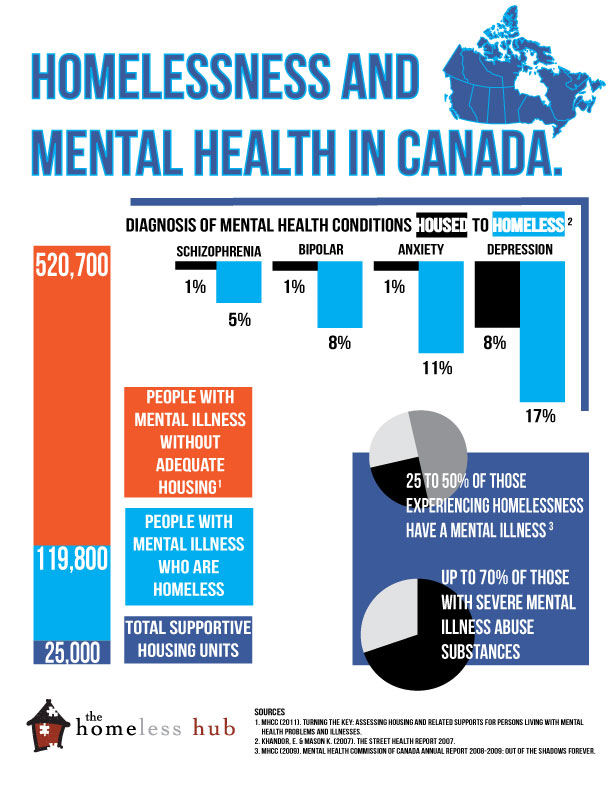Learning From Global Best Practices: Improving Youth Mental Health Services In Canada

Table of Contents
Early Intervention and Prevention Programs
Early intervention is crucial in addressing youth mental health challenges. By identifying and supporting young people at risk, we can prevent escalation and improve long-term outcomes.
Successful International Models of Early Intervention
Several countries have implemented successful early intervention programs. The UK's "Every Mind Matters" campaign utilizes a digital platform to provide accessible mental health information and support. Australia's "Headspace" centers offer comprehensive mental health services specifically tailored for young people, encompassing early intervention and ongoing support. The Netherlands' focus on youth mental health promotion within schools has yielded positive results, demonstrating the importance of integrating mental health education within the educational curriculum.
- Every Mind Matters (UK): Digital platform with self-help resources and information. Targets all youth.
- Headspace (Australia): Community-based centers offering a range of mental health services for young people aged 12-25.
- School-Based Mental Health Programs (Netherlands): Integrated mental health services within schools, providing early identification and support.
Adapting International Models to the Canadian Context
Adapting these international models requires careful consideration of Canada's diverse cultural landscape. Indigenous youth, for example, often face unique challenges requiring culturally sensitive and trauma-informed approaches. Language barriers, geographic isolation, and socioeconomic disparities also necessitate tailoring programs to meet the specific needs of different communities.
- Challenges: Adapting programs to suit diverse linguistic and cultural backgrounds; Addressing accessibility issues in remote and rural areas; Ensuring culturally safe and appropriate services for Indigenous youth.
- Strategies: Collaboration with Indigenous communities; Translation and cultural adaptation of materials; Utilizing community-based approaches.
Access to Mental Healthcare
Access to timely and appropriate mental healthcare is a significant challenge in Canada.
Addressing Barriers to Access
Many obstacles hinder access to mental health services. Long wait times for appointments, high costs of treatment, persistent stigma surrounding mental illness, and limited availability in rural and remote areas are major concerns.
- Wait times: Average wait times for specialized mental health services can be excessively long, delaying crucial treatment.
- Cost of treatment: The cost of therapy and medication can be prohibitive for many families.
- Stigma: Social stigma associated with mental illness prevents many young people from seeking help.
Innovative Models for Increasing Access
International examples demonstrate effective strategies for enhancing access. Telehealth platforms offer remote access to mental health professionals, overcoming geographic barriers. Mobile mental health services provide outreach to underserved communities. Peer support networks leverage the power of shared experience to build supportive communities and reduce isolation.
- Telehealth: Video conferencing allows remote consultations with therapists and psychiatrists.
- Mobile mental health units: Outreach teams provide mental health services in community settings.
- Peer support: Connecting young people with others who have shared experiences fosters a sense of community and reduces stigma.
Training and Support for Mental Health Professionals
Investing in the mental health workforce is paramount.
Global Best Practices in Professional Training
Countries like the UK and Australia have established advanced training programs, specialized certifications (e.g., in child and adolescent mental health), and ongoing professional development opportunities to ensure high-quality mental health services. These programs prioritize cultural competency training to equip professionals to effectively serve diverse populations.
- Specialized training programs: Advanced training in specific areas such as trauma-informed care or early intervention.
- Continuing education: Regular professional development opportunities to keep up with advancements in the field.
- Cultural competency training: Equipping professionals to work effectively with diverse populations.
Supporting the Mental Health Workforce in Canada
Canada needs to address workforce shortages, improve working conditions, and reduce burnout among mental health professionals. Competitive salaries, supportive work environments, and access to professional development opportunities are crucial for recruitment and retention. Promoting mental health and well-being within the profession itself is also vital.
- Addressing workforce shortages: Investing in training programs and creating incentives for professionals to work in underserved areas.
- Improving working conditions: Reducing workloads and providing adequate resources to support mental health professionals.
- Promoting mental health within the profession: Providing access to mental health services and support for mental health professionals.
Technological Advancements in Youth Mental Health Care
Technology offers significant opportunities to improve youth mental health care.
Utilizing Technology for Improved Access and Treatment
Many countries are successfully integrating digital tools, apps, and online platforms for mental health support and intervention. These technologies offer increased accessibility, personalized interventions, and opportunities for self-management.
- Mental health apps: Apps provide self-help resources, tracking tools, and access to mental health professionals.
- Telehealth platforms: Secure video conferencing platforms facilitate remote consultations and therapy sessions.
- AI in mental health care: Artificial intelligence can aid in early detection, personalized treatment plans, and monitoring of progress.
Data-Driven Approaches and Evaluation
Data collection and analysis are vital for evaluating the effectiveness of interventions and informing future improvements. Global examples demonstrate the value of using data to track outcomes, improve service delivery, and build evidence-based practice.
- Outcome tracking: Utilizing standardized measures to track progress and evaluate the effectiveness of different interventions.
- Data-driven improvements: Using data to identify areas for improvement in service delivery and adjust programs accordingly.
- Evidence-based practice: Incorporating research findings and data analysis to inform decision-making and optimize mental health services.
Conclusion: Improving Youth Mental Health Services in Canada through Global Collaboration
Improving youth mental health services in Canada requires a multifaceted approach. By learning from global best practices in early intervention, access to care, professional training, and technological advancements, Canada can significantly enhance its mental health care system. Adapting international models to the Canadian context, with specific attention to cultural diversity and unique challenges, is crucial. Collaborative efforts, implementation of evidence-based strategies, and a commitment to continuous improvement are essential to achieving meaningful change. We encourage you to learn more about youth mental health services in Canada, explore global best practices in this area, and support initiatives aimed at improving mental health care for young people. Let's work together to build a stronger, more supportive system for the mental well-being of Canadian youth.

Featured Posts
-
 Orta Afrika Cumhuriyeti Nin Bae Ile Yeni Ticaret Anlasmasi Analiz Ve Oenemli Maddeler
May 02, 2025
Orta Afrika Cumhuriyeti Nin Bae Ile Yeni Ticaret Anlasmasi Analiz Ve Oenemli Maddeler
May 02, 2025 -
 Verdeelstation Oostwold Bewoners Teleurgesteld Over Onontkoombare Komst
May 02, 2025
Verdeelstation Oostwold Bewoners Teleurgesteld Over Onontkoombare Komst
May 02, 2025 -
 Avrupa Birligi Ile Is Birligimiz Yeni Bir Doenem
May 02, 2025
Avrupa Birligi Ile Is Birligimiz Yeni Bir Doenem
May 02, 2025 -
 Trash Pickup And School Closings Fridays Winter Weather Impact
May 02, 2025
Trash Pickup And School Closings Fridays Winter Weather Impact
May 02, 2025 -
 Analysis Hans Resignation And The Upcoming South Korean Presidential Election
May 02, 2025
Analysis Hans Resignation And The Upcoming South Korean Presidential Election
May 02, 2025
Latest Posts
-
 Drone Attack On Ship Carrying Aid To Gaza Ngo Statement
May 03, 2025
Drone Attack On Ship Carrying Aid To Gaza Ngo Statement
May 03, 2025 -
 Activist Aid Ship To Gaza Hit By Drone Strikes Ngo
May 03, 2025
Activist Aid Ship To Gaza Hit By Drone Strikes Ngo
May 03, 2025 -
 Ngo Condemns Drone Attack On Gaza Aid Ship
May 03, 2025
Ngo Condemns Drone Attack On Gaza Aid Ship
May 03, 2025 -
 Drone Attack Allegation Aid Ship En Route To Gaza Sends Sos
May 03, 2025
Drone Attack Allegation Aid Ship En Route To Gaza Sends Sos
May 03, 2025 -
 Aid Ship To Gaza Under Attack Sos Issued Off Maltese Coast
May 03, 2025
Aid Ship To Gaza Under Attack Sos Issued Off Maltese Coast
May 03, 2025
